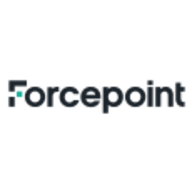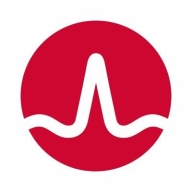

Symantec Data Loss Prevention and Forcepoint Risk Adaptive Protection for DLP are competing products in the data security category. Forcepoint Risk Adaptive Protection for DLP has a slight edge due to its advanced features catering to dynamic environments.
Features: Symantec Data Loss Prevention offers extensive data protection across various platforms, focusing on in-depth data monitoring and analysis. It provides comprehensive coverage and solid integration capabilities. Forcepoint Risk Adaptive Protection for DLP features real-time risk assessment with automated response, adaptable data protection tailored to varying threat levels, and an adaptive protection strategy suitable for dynamic environments.
Ease of Deployment and Customer Service: Symantec Data Loss Prevention is known for its straightforward deployment and robust support resources, facilitating seamless integration. Forcepoint Risk Adaptive Protection for DLP features a more complex deployment model, requiring a detailed setup due to its advanced capabilities but provides a robust security structure. Both offer commendable customer support, with Symantec preferred for its ease of deployment.
Pricing and ROI: Symantec Data Loss Prevention is cost-effective with a lower initial setup cost, appealing to budget-conscious organizations while ensuring solid ROI with comprehensive features. Forcepoint Risk Adaptive Protection for DLP, though having a higher setup cost, offers robust adaptive security features, potentially leading to a significantly higher ROI through enhanced data protection and threat response capabilities.
| Product | Market Share (%) |
|---|---|
| Symantec Data Loss Prevention | 4.2% |
| Forcepoint Risk Adaptive Protection for DLP | 0.6% |
| Other | 95.2% |
| Company Size | Count |
|---|---|
| Small Business | 23 |
| Midsize Enterprise | 12 |
| Large Enterprise | 28 |
Forcepoint Risk Adaptive Protection for DLP offers dynamic security measures tailored to data protection needs, ensuring sensitive information is safeguarded efficiently.
Forcepoint Risk Adaptive Protection for DLP is designed to provide a balanced approach to data loss prevention by adapting security measures based on real-time risk assessment. This innovative system prioritizes protecting sensitive information while allowing for seamless workflow integration, making it a suitable choice for organizations looking to enhance their data protection strategies.
What are the key features of Forcepoint Risk Adaptive Protection for DLP?Forcepoint Risk Adaptive Protection for DLP is particularly effective in industries with stringent data protection requirements such as healthcare, finance, and government. It adapts its security posture to the specific risks faced in these sectors, addressing compliance mandates and safeguarding sensitive information efficiently.
Keeping sensitive corporate information safe and compliant has never been easy. But today, you’re faced with a totally new set of data protection challenges. Sensitive information is leaving the safety of your corporate network as more employees share files over consumer cloud storage services and access those files on their own mobile devices. The number of targeted cyber attacks continues to grow, as cybercriminals develop effective new methods for defeating traditional security measures and stealing corporate information. And as all of these factors converge, it becomes increasingly difficult to manage corporate information and protect it against loss and theft.
Symantec Data Loss Prevention (DLP) provides a comprehensive approach to information protection that embraces today’s cloud- and mobile-centered realities. With DLP, you can:
• Discover where data is stored across all of your cloud, mobile, network, endpoint, and storage systems
• Monitor how data is being used, whether your employees are on or off the network
• Protect data from being leaked or stolen—no matter where it’s stored or how it’s used
We monitor all Data Loss Prevention (DLP) reviews to prevent fraudulent reviews and keep review quality high. We do not post reviews by company employees or direct competitors. We validate each review for authenticity via cross-reference with LinkedIn, and personal follow-up with the reviewer when necessary.